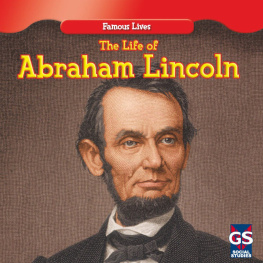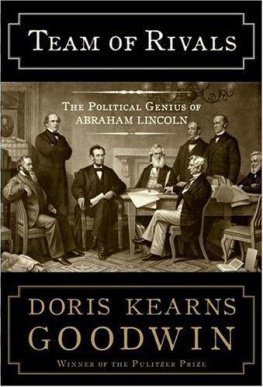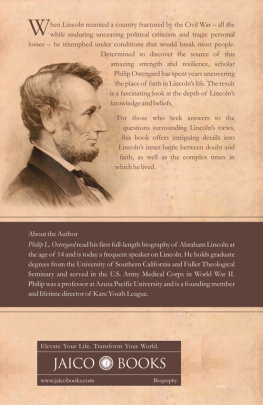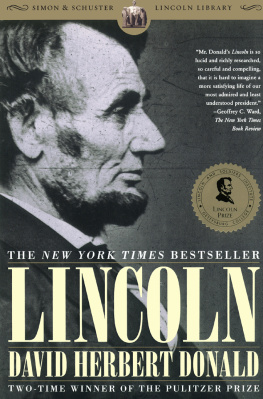William Charles Harris - Lincoln and the Border States: Preserving the Union
Here you can read online William Charles Harris - Lincoln and the Border States: Preserving the Union full text of the book (entire story) in english for free. Download pdf and epub, get meaning, cover and reviews about this ebook. City: Lawrence, year: 2014, publisher: University Press of Kansas, genre: History / Science. Description of the work, (preface) as well as reviews are available. Best literature library LitArk.com created for fans of good reading and offers a wide selection of genres:
Romance novel
Science fiction
Adventure
Detective
Science
History
Home and family
Prose
Art
Politics
Computer
Non-fiction
Religion
Business
Children
Humor
Choose a favorite category and find really read worthwhile books. Enjoy immersion in the world of imagination, feel the emotions of the characters or learn something new for yourself, make an fascinating discovery.

- Book:Lincoln and the Border States: Preserving the Union
- Author:
- Publisher:University Press of Kansas
- Genre:
- Year:2014
- City:Lawrence
- Rating:5 / 5
- Favourites:Add to favourites
- Your mark:
Lincoln and the Border States: Preserving the Union: summary, description and annotation
We offer to read an annotation, description, summary or preface (depends on what the author of the book "Lincoln and the Border States: Preserving the Union" wrote himself). If you haven't found the necessary information about the book — write in the comments, we will try to find it.
Although most scholars have labeled Lincoln a moderate, Harris reveals that he was by his own admission a conservative who revered the Founders and advocated adherence to the old and tried. By emphasizing the conservative bent that guided Lincolns political evolution-his background as a Henry Clay Whig, his rural ties, his cautious nature, and the racial and political realities of central IllinoisHarris provides fresh insight into Lincolns political ideas and activities and portrays him as morally opposed to slavery but fundamentally conservative in his political strategy against it.
Interweaving aspects of Lincolns life and character that were an integral part of his rise to prominence, Harris provides in-depth coverage of Lincolns controversial term in Congress, his re-emergence as the leader of the antislavery coalition in Illinois, and his Senate campaign against Stephen A.Douglas. He particularly describes how Lincoln organized the antislavery coalition into the Republican Party while retaining the support of its diverse elements, and sheds new light on Lincolns ongoing efforts to bring Know Nothing nativists into the coalition without alienating ethnic groups. He also provides new information and analysis regarding Lincolns nomination and election to the presidency, the selection of his cabinet, and his important role as president-elect during the secession crisis of 1860-1861
Challenging prevailing views, Harris portrays Lincoln as increasingly driven not so much by his own ambitions as by his antislavery sentiments and his fear for the republic in the hands of Douglas Democrats, and he shows how the unique political skills Lincoln developed in Illinois shaped his wartime leadership abilities. By doing so, he opens a window on his political ideas and influences and offers a fresh understanding of this complex figure.
William Charles Harris: author's other books
Who wrote Lincoln and the Border States: Preserving the Union? Find out the surname, the name of the author of the book and a list of all author's works by series.
















